O esporte em geral e o futebol em particular oferecem numerosos exemplos de superação. Essa superação pode ser individual, quando um atleta suplanta as expectativas de quem costuma acompanhar os seus resultados ou, ainda, pode ser coletiva, quando elevados graus de esforço, de mobilização e de coesão conduzem uma determinada equipe a vitórias quase que inesperadas.
A superação aguardada, contudo, parece não estar próxima. Essa diz com o racismo e com os preconceitos diuturnamente identificados, registrados e pouco ou ineficazmente combatidos no âmbito esportivo. Não é novidade que são adotados critérios sensíveis à origem, à sexualidade, ao gênero, à raça e à idade das pessoas que geram tratamentos desfavoráveis e desigualizantes. Essas desigualdades estão fortemente vivas na formação, no desenvolvimento e na contratação de atletas e de gestores, na ocupação dos espaços de comando, na comunicação, nas definições de premiações, nas concessões de patrocínios e nos comportamentos do público-alvo nas arenas esportivas e nas redes sociais.
A superação do racismo, é necessário sublinhar, há muito, também é esperada em outros domínios e não apenas no esporte embora se possa afirmar que a superação nesse domínio teria uma repercussão a curto prazo talvez inimaginável para aqueles que combatem o racismo na educação, nas relações de trabalho, no sistema de justiça ou no sistema de segurança. O esporte é um domínio no qual as discriminações operam com frequência e com amplitude como em outros tantos. Todavia essas características somadas à visibilidade que essa área de atuação humana atinge permitem entender que ações antirracistas nessa seara podem produzir significativos resultados e impactos na sociedade. Importa, entretanto, evidenciar que não é bastante enfrentar o racismo, os preconceitos, as discriminações e os decorrentes vieses em apenas um espaço ou domínio, pois questões complexas, estruturais e pervasivas exigem prevenção, precaução e intervenção com alcance equivalente.
A desigualdade e a discriminação raciais podem ser constatadas sob o exclusivo olhar dos direitos humanos, mas o respectivo enfrentamento deve ser procedido em combinação com os olhares da economia, da psicologia e da neurociência. Sim, é possível aferir os custos sociais e econômicos desses fenômenos raciais, bem como os ganhos com ações antirracistas. Pode-se, também, utilizar as ciências comportamentais como instrumento de avaliação e de mudança. O certo é que apenas levantar dados é insuficiente e que políticas públicas ou privadas, tal como regramentos, devem levar em conta fatores sociológicos, psicológicos, históricos, econômicos, comunicacionais, políticos e jurídicos para saber como as pessoas sentem, agem e comprometem-se com mudanças. Hoje, mundialmente, prevalecem a ineficiência e a ineficácia, mantendo-se a cultura baseada em falsas hierarquias.
Parece não haver consenso de que a questão racial é fundamental para que haja harmonia nas relações entre pessoas e entre nações. Há confusões conceituais tais como entender que a discriminação racial está restrita à situação econômica desfavorável ou à cor da pele. Se assim fosse, talvez não houvesse casos envolvendo atletas negros bem sucedidos financeiramente, tampouco turcos, judeus e árabes. Está-se diante de problema complexo, o que acaba por exigir complexidade na busca e na solução propriamente dita.
Vivenciamos a década internacional dos afrodescendentes, que vai de 2015 a 2024, mas não nos deparamos com ações planejadas, concretas e transformadoras de natureza privada ou pública. O atingimento dos Objetivos de Desenvolvimento Sustentável, no Brasil, obrigaria a agenda política a se abrir para a questão racial assim como deveria tornar a responsabilidade social corporativa permeável à temática supracitada. Porém, esses importantes ajustes internacionais não foram exitosos na convergência de esforços para a sociedade reafirmasse valores extremamente relevantes e agisse em sintonia com eles. Aliás, inexitosa também tem sido a nossa Constituição embora repudie o racismo e o preconceito por se destinar à construção de uma sociedade democrática, justa e solidária.
Não é ousado dizer que o Observatório da discriminação racial no futebol desempenha papel essencial na desejada mudança de valores, de julgamentos, de decisões e de comportamentos que precisam ocorrer no enfrentamento ao racismo. O Observatório apoia aqueles que estão em situação de sofrimento, divulga e contabiliza atos discriminatórios, persegue a realização de apuração e a tomada de posição por parte de vítimas, de agressores e de gestores esportivos.
Perceba-se que ele não apenas observa, procurando intervir inclusive preventivamente. Nesse sentido, ganha relevo a capilaridade atingida pelo Observatório em decorrência de ter como política sempre estar disponível para pessoas, para instituições e para outros temas de direitos humanos. Assim sendo, o Observatório vai além do que fazem instituições que trazem análises qualitativas ou quantitativas das desigualdades em determinados domínios. Ele assume o encargo de, a partir de seus relatórios, promover ações, articulações e debates que possam ser capazes de levar à reflexão e à mudança no âmbito do futebol.
Jorge Terra.
Coordenador da Rede Afro-gaúcha de Profissionais do Direito
Escrito no início de 2020 para o Observatório contra a discriminação racial no futebol.
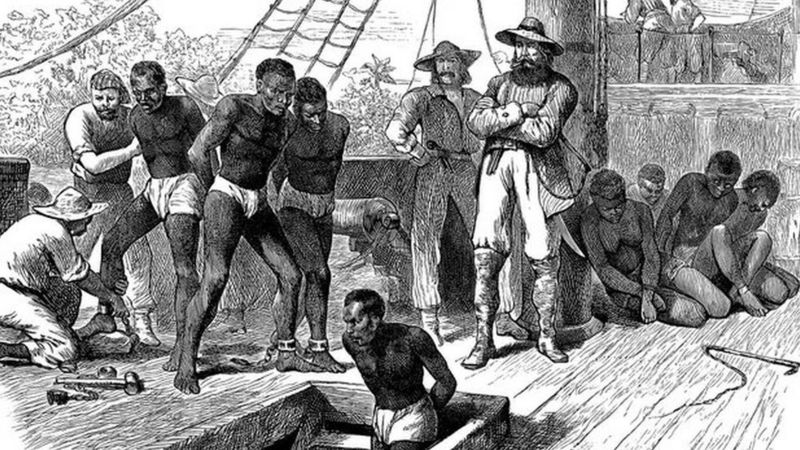 GETTY IMAGES
GETTY IMAGES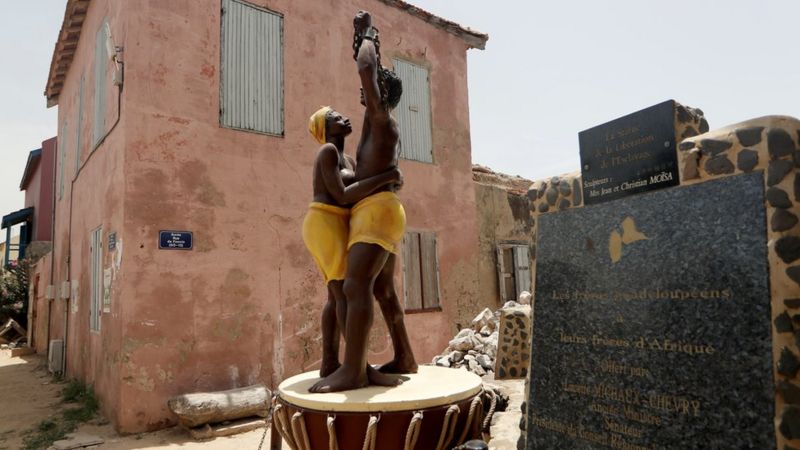 REUTERS – More than 12 million Africans were forcibly transported across the Atlantic to work as slaves. This statue commemorating the abolition of slavery stands in front of the House of Slaves museum in Dakar, Senegal, before being relocated to the “Freedom and Human Dignity” Square, on Goree island, off the coast of Senegal on July 3, 2020
REUTERS – More than 12 million Africans were forcibly transported across the Atlantic to work as slaves. This statue commemorating the abolition of slavery stands in front of the House of Slaves museum in Dakar, Senegal, before being relocated to the “Freedom and Human Dignity” Square, on Goree island, off the coast of Senegal on July 3, 2020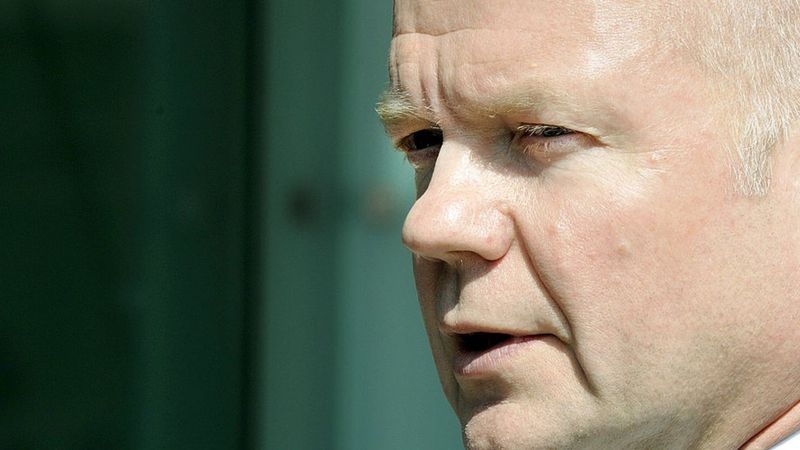 GETTY IMAGES William Hague was the UK Foreign Secretary from 2010 to 2014
GETTY IMAGES William Hague was the UK Foreign Secretary from 2010 to 2014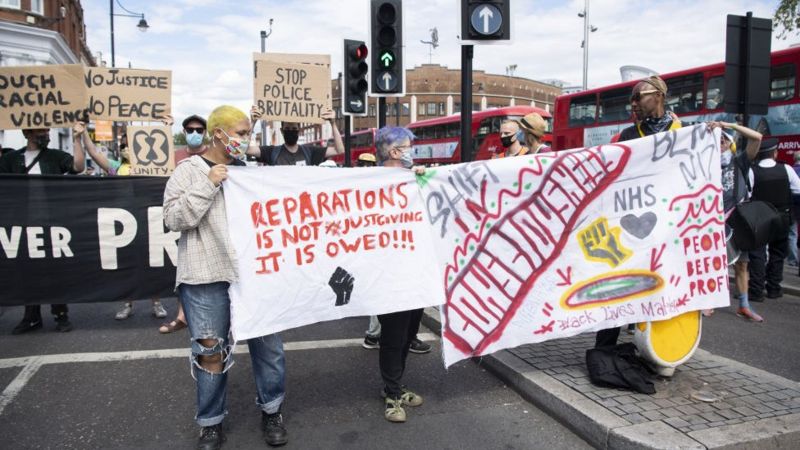 GETTY IMAGES Some people held banners calling for reparations during marches on Afrikan Emancipation Day in London earlier this month
GETTY IMAGES Some people held banners calling for reparations during marches on Afrikan Emancipation Day in London earlier this month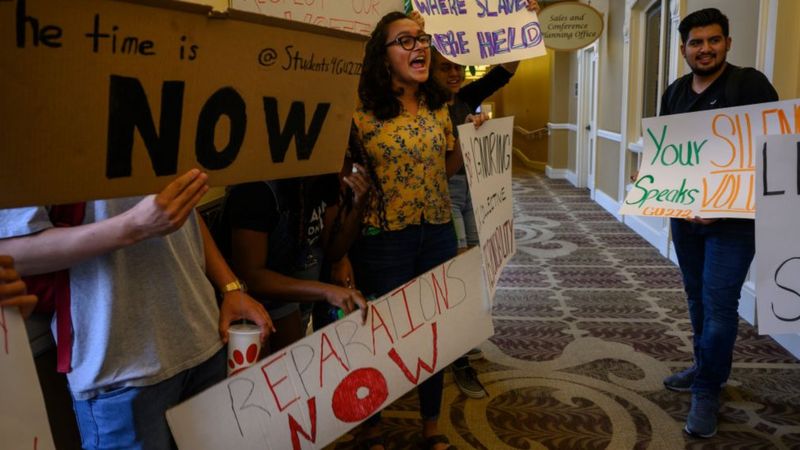 GETTY IMAGES In the United States, reparations for slavery has also become a big talking point
GETTY IMAGES In the United States, reparations for slavery has also become a big talking point